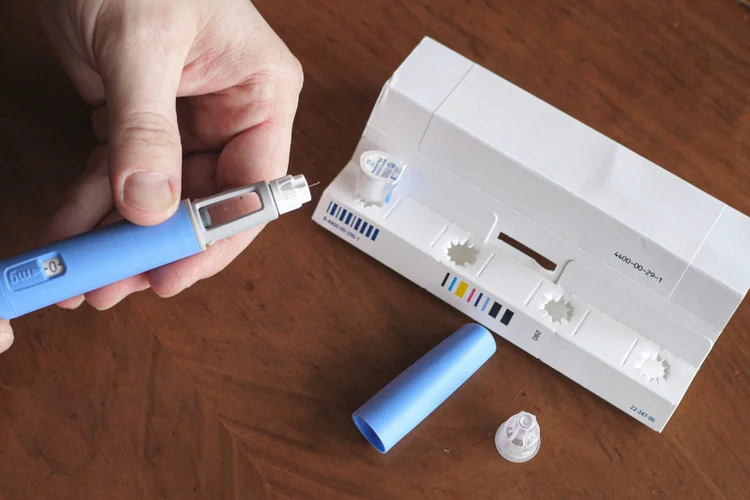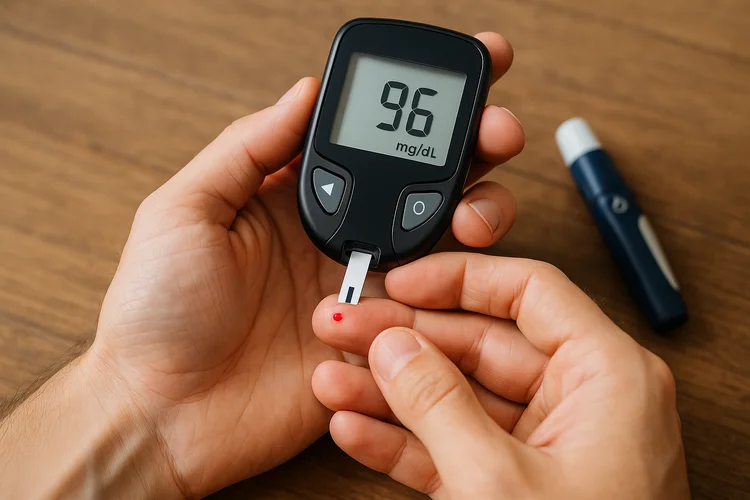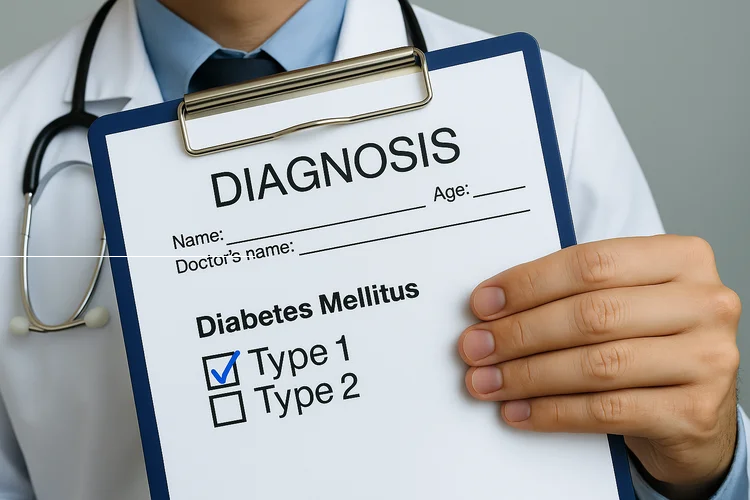What Is Liraglutide?
Liraglutide is a prescription injectable medication for type 2
diabetes management and weight
loss. It is available under the brand names Victoza®
(for diabetes) and Saxenda® (for weight management). As a GLP-1 receptor agonist,
liraglutide works by mimicking a gut hormone that controls blood
sugar, slows stomach emptying, and suppresses appetite.
Liraglutide is administered as a daily injection and is most effective when
used together with a healthy diet and regular exercise. It may be suitable
for adults struggling to manage blood sugar levels or achieve weight loss
through lifestyle changes alone.

Liraglutide Mechanism of Action: How Does It Work?
Liraglutide works by supporting the body’s natural processes that control blood sugar levels and appetite:
- Stimulates insulin secretion when blood sugar levels are high, helping the body move glucose from the bloodstream into cells for energy.
- May suppress glucagon release, which reduces the liver’s production of glucose, stabilising blood sugar levels.
- Slows gastric emptying, so food stays in the stomach longer, helping you feel full for longer and reducing blood sugar spikes.
- Reduces appetite by activating GLP-1 receptors in the brain’s hunger centres to help lower food intake and support weight management.
These effects help improve glycaemic control and support weight loss, particularly in individuals with type 2 diabetes or obesity.
Liraglutide vs Other GLP-1 Medications
Liraglutide is one of several GLP-1 receptor agonists available for managing type 2
diabetes and weight.
While all medications in this class share a common mechanism of action through GLP-1
receptor activation, they differ in how often they are taken, whether they target
other receptors, and the conditions they are approved to treat.
| Medication | Receptor Targets | Dosing Frequency and Route | Used For |
|---|---|---|---|
| Liraglutide (Victoza® / Saxenda®) | GLP-1 only | Daily injection (subcutaneous) | Type 2 diabetes (Victoza), weight management (Saxenda) |
| Semaglutide (Ozempic® / Wegovy® / Rybelsus®) | GLP-1 only | Weekly injection (subcutaneous) | Type 2 diabetes (Ozempic), weight management (Wegovy) |
| Dulaglutide (Trulicity) | GLP-1 only | Weekly injection (subcutaneous) | Type 2 diabetes |
| Tirzepatide (Mounjaro®) | GLP-1 + GIP | Weekly injection (subcutaneous) | Type 2 diabetes, weight management |
Liraglutide Uses
Liraglutide is prescribed under two different brand names, each approved for a specific medical purpose: Victoza for managing type 2 diabetes and Saxenda for long-term weight management.
- Type 2 Diabetes Management (Victoza) – Used to improve blood sugar control in adults and adolescents aged 10 years and older with type 2 diabetes, particularly when other medications do not provide adequate control.
-
Weight Management (Saxenda) – At higher doses,
liraglutide is used together with a reduced-calorie diet and increased
physical activity for long-term weight management in adults with:
- A BMI ≥30 (obesity), or
- A BMI ≥27 (overweight) with weight-related conditions such as high blood pressure, high cholesterol, or type 2 diabetes.

Liraglutide Dosage and Administration
Liraglutide is given once daily as an injection under the skin, usually in the abdomen, thigh, or upper arm.
- Victoza (For Type 2 Diabetes) – The initial dose is typically 0.6 mg once daily, gradually increased to 1.2 mg or 1.8 mg to improve glycaemic control.
- Saxenda (For Weight Management) – The dose is usually increased weekly, starting from 0.6 mg and rising by 0.6 mg each week, up to a maintenance dose of 3.0 mg daily, if tolerated.
Dosage and titration schedules (how it is adjusted over time) may vary depending on your medical condition and how you respond to treatment. It is important to follow your doctor’s instructions, as they will determine the most appropriate dosing plan for your needs.
Disclaimer: This information is provided for general medical reference and should not be used as a substitute for professional medical advice. Always consult your doctor regarding your individual treatment.
Potential Liraglutide Side Effects
As with all medications, liraglutide may cause side effects, particularly during the initial phase of treatment. Common side effects include:
- Gastrointestinal symptoms such as nausea, vomiting, diarrhoea, constipation, or abdominal discomfort.
- Loss of appetite or changes in taste.
- Fatigue or feeling unusually tired.
- A mild increase in heart rate.
- Injection site reactions, such as redness, itching, or swelling.
These side effects are usually mild and tend to improve as your body adapts to the medication. However, you should seek medical attention if you experience any of the following:
- Persistent or severe abdominal pain, which may indicate pancreatitis.
- Signs of gallbladder issues, such as pain in the upper right abdomen, nausea, or yellowing of the skin or eyes (jaundice).
- Symptoms of an allergic reaction, including rash, swelling, or difficulty breathing.
Disclaimer: This is not a complete list of side effects. Always consult your doctor if you notice anything unusual or if you have concerns during treatment.
Who Should Not Use Liraglutide?
Liraglutide may not be suitable for individuals with certain medical conditions or risk factors. It is generally not recommended for:
- Individuals with type 1 diabetes, as liraglutide relies on the body’s ability to produce insulin.
- People with a personal or family history of medullary thyroid carcinoma or multiple endocrine neoplasia syndrome type 2 (MEN2), due to a possible risk of thyroid C-cell tumours.
- Those with severe gastrointestinal conditions, such as gastroparesis, as liraglutide slows stomach emptying.
It is best to consult your doctor, who can assess your medical history and determine whether liraglutide is appropriate for you.

Is Liraglutide Available Over the Counter in Singapore?
No, liraglutide is a prescription-only medication in Singapore. It
cannot be purchased over the counter and must be prescribed by a licensed healthcare
provider following a medical consultation.
A consultation
is essential to evaluate your health condition, determine the suitability of
liraglutide, and develop an appropriate treatment plan. Routine follow-up is also
necessary to monitor your response and make dosage adjustments if needed.
Why Choose ATA Medical?








Making a Difference Together
At ATA Medical, we strive to make a meaningful impact on every patient's health. With over 150,000 patients served, we are dedicated to fostering trust and enhancing well-being across our community.
Patients
Health Screening Tests
Corporate Screenings
Delivering Care Patients Appreciate
What to Expect
FAST RESULTS
We strive to deliver your results within 7 working days.
MINIMUM WAITING TIME
Our patient-oriented processes ensure your waiting time is kept to a minimum.
Friendly Service
Service is a top priority for us at ATA Medical.
Email Us at camden@atamed.sg
for More Information.
Book Your Health Screening With Us at 88770326.

